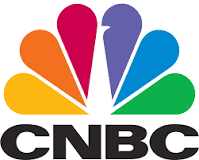Scott Kirby, CEO of United Airlines, speaks during the WSJ's Future of Everything 2025 at the Glasshouse on May 29, 2025 in New York City.
Michael M. Santiago | Getty Images
NEWARK, New Jersey — An oversupply of flights forced airlines to cut fares this year and pushed carriers to scale back their growth plans.
United Airlines' expansion, however, is outpacing its large-airline rivals, a plan CEO Scott Kirby told CNBC is paying off because of the company's product, network and technology, like on-board amenities such as Bluetooth connectivity, seat-back screens and its app.
"This year is going to wind up demonstrating two things: If you're a brand loyal airline, you're resilient, even in downturn," Kirby said in an interview Tuesday, referring to a customer pull-back earlier this year, when consumers weighed an onslaught of on-again-off-again tariffs. "And I think our fourth-quarter results are going to demonstrate the upside when the economy starts to recover."
United will report third-quarter results and provide its fourth-quarter outlook in mid-October.
United is set to grow domestic U.S. capacity 5.7% in 2025 from last year, according to aviation-data firm Cirium. On average, U.S. airlines are expanding just shy of 2%, with Delta Air Lines and American Airlines domestic growth up about 3%, and Southwest Airlines growing 1.4% from 2024, Cirium data show.
"We're just a different place because customers are choosing us, and I think that's one of the biggest changes in the industry," Kirby said. "So many airlines thought of air travel as a commodity."
Kirby spoke to CNBC at the airline's hangar at Newark Liberty Airport in New Jersey, where in June 2021, United unveiled new interiors for its fleet of narrow-body Airbus and Boeing planes. Kirby said United is about two-thirds of the way through its plan to outfit those planes with the new cabins.
U.S. airlines have raced to update cabins with more modern seating as well as more spacious seats at the front of the airplane as customers continue to pay up for more room on board to the tune of sometimes 10 times or more the fare of a standard economy seat.
Delta's president, Glen Hauenstein, said at a Morgan Stanley conference in California last week that "well over" half of the carrier's revenue comes from outside of the main cabin, including its lucrative loyalty program, and that next year, Delta will offer a "record number" of premium seats.
"We see no stopping of that," Hauenstein said.

 1 month ago
1 month ago














